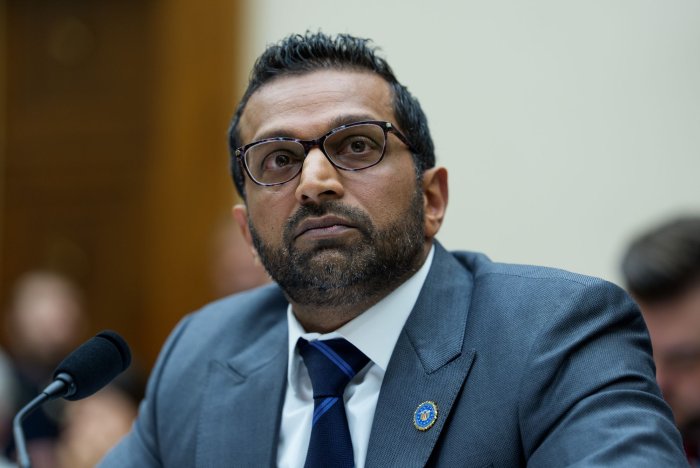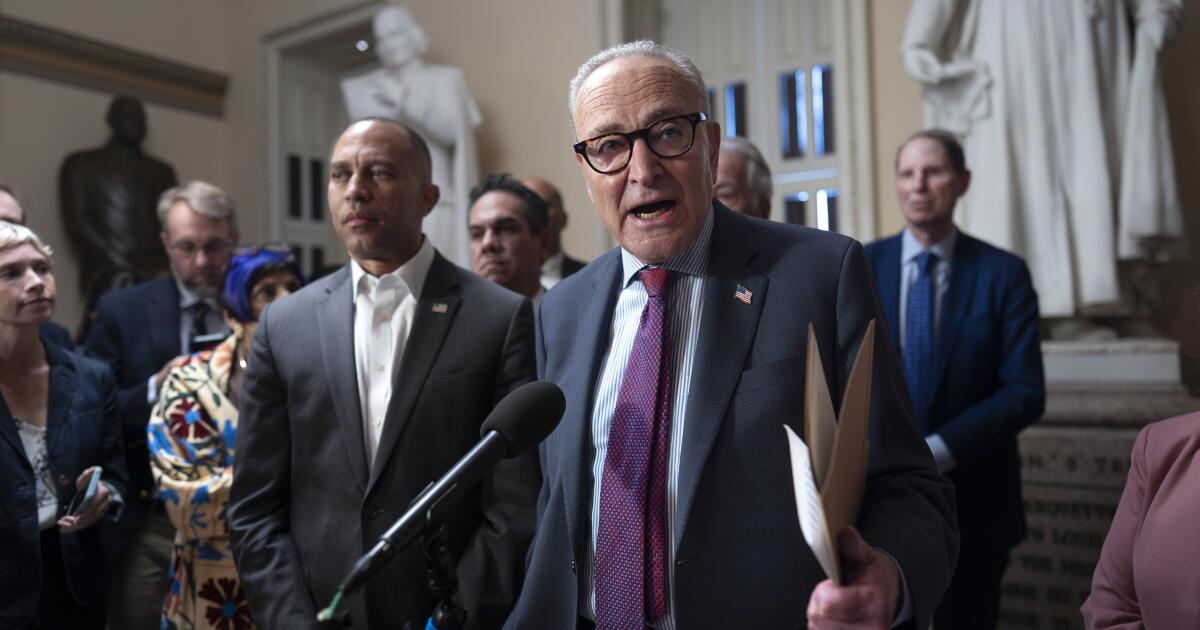WASHINGTON — There’s bipartisan support in Congress for extending tax credits that have made health insurance more affordable for millions of people since the COVID-19 pandemic. But the credits are in danger of expiring as Republicans and Democrats clash over how to do it.
Democrats are threatening to vote to shut down the government at the end of the month if Republicans don’t extend the subsidies, which were put in place in 2021 and extended a year later when Democrats controlled Congress and the White House. The tax credits, which are due to expire at the end of the year, go to low- and middle-income people who purchase health insurance through the Affordable Care Act.
Some Republicans who have opposed the healthcare law, known as Obamacare, since it was enacted in 2010 are suddenly open to keeping the tax credits. They acknowledge that many of their constituents could see steep hikes in coverage if the subsidies are allowed to lapse.
But the two sides are far apart. Republicans are divided, with many firmly opposed. GOP leaders in the House and Senate have been open but noncommittal on the extension, and many of those Republicans who say they support it argue that the tax credits should be reworked — potentially opening up a new healthcare debate that could take months to resolve.
Democrats would be unlikely to agree to any changes in the subsidies, increasing the chances of a standoff and mounting uncertainty for health insurers, hospitals, state governments and the people who receive them.
“In just a few weeks, unless Congress acts, millions of Americans will start getting letters in the mail telling them their health insurance costs are about to go through the roof — hundreds of dollars, thousands in some cases,” Senate Democratic leader Chuck Schumer (D-N.Y.) said last week.
Surging enrollment
Enrollment in Affordable Care Act plans has surged to a record 24 million people in large part due to the billions of dollars in subsidies that have lowered costs for many people. The expanded subsidies allowed some lower-income enrollees to access health plans with no premiums and capped the amount higher earners pay for premiums to 8.5% of their income. It also expanded eligibility for middle-class earners.
With expiration just a few months away, some of those people have already gotten notices that their monthly premiums are poised to surge next year. Insurers have sent out notices in nearly every state, with some proposing premium increases of as much as 50%.
Lawmakers are facing pressure to act from some of the country’s biggest industries, including the insurers that cover people on the marketplace and hospital executives who say they’re already going to be squeezed by the Medicaid cuts in President Trump’s massive spending and tax bill enacted this summer.
“There’s broad awareness that there’s a real spike in premiums coming right around the corner, both Republicans and Democrats,” said David Merritt, senior vice president of external affairs at Blue Cross Blue Shield. “It’s certainly lining up for Congress to have an opportunity to head off this problem.”
Companies have said they’ll need to raise premiums without the subsidies because healthier and younger people are more likely to opt out of coverage when it gets more expensive, leaving insurers to cover older and sicker patients.
In Iowa last month, the state’s insurance commissioner weighed increases ranging from 3% to 37% against a stream of angry public comments. One woman who runs a garden center in Cedar Falls said she was considering dropping her health insurance.
“I am already living as frugally as I possibly can while working as hard as I possibly can, putting in as many hours as I am allowed to at my job, never missing a day of work,” the woman, LuAnn, wrote in a public comment published to the commissioner’s website.
Feud over Obamacare
On Capitol Hill, the issue has become entangled in a larger fight over government funding as the threat of a shutdown looms at the end of the month. Schumer and House Minority Leader Hakeem Jeffries (D-N.Y.) have said Democrats will not vote to keep the government open unless an extension of the healthcare tax credits is part of the deal. Republicans have said that they want more time to look at the subsidies and potentially scale them back. They will also have to wait for a signal from Trump, who has not yet weighed in.
Jeffries said last week that “we will not support a partisan Republican spending bill that continues to rip away healthcare from the American people.”
Republican leaders are eyeing a potential stopgap bill that would keep the government open for a few weeks, but they are unlikely, for now, to include the extension. GOP leaders in both the House and Senate are also under pressure from some members who worry that premium increases will be a political liability before next year’s midterm elections.
Senate Majority Leader John Thune (R-S.D.) has said he wants to see a proposal from Democrats on how to extend the subsidies since they are pushing the issue. “Maybe there is something we can do in the middle as a solution,” he said in a Punchbowl News interview Thursday, adding that his members are divided on the issue.
Still, Thune has ruled out quick action, even as he noted that premium notices will go out soon. He has said a short-term spending measure to fund the government for several weeks while Congress finishes its budget bills is not likely to include an extension of the benefits,
House Speaker Mike Johnson (R-La.) has said that many of his members would oppose an extension, but he has not ruled it out.
In recent days, 15 House Republicans in competitive political districts introduced legislation to extend the tax credits for one year. “While the enhanced premium tax credit created during the pandemic was meant to be temporary, we should not let it expire without a plan in place,” said Rep. Jen Kiggans (R-Va.), who led the effort with Rep. Tom Suozzi (D-N.Y.).
Middle-class and small-business owners, including many in Kiggans’ coastal Virginia district, will be especially vulnerable to big health insurance hikes if the subsidies are not extended.
Several Senate Republicans also said they’d favor an extension. Sen. Josh Hawley of Missouri said that if Congress doesn’t act, some premiums will “skyrocket, and not by a little bit. We’re looking at massive increases. People will not be able to afford it.”
Sen. John Cornyn (R-Texas) said he thinks Congress should scale back the subsidies for the highest-income people who receive them. “I think we all know that access to healthcare is important and we take it very seriously,” he said.
Senate Finance Committee Chairman Mike Crapo (R-Idaho), whose panel has jurisdiction over the tax credits, said he’s working with his colleagues to find a solution. “There are a lot of ideas being thrown out there,” he said. “I’m trying to find a solution; I’m not telling you what the solution is.”
Others were firmly against it. “It’s costing us billions of dollars,” Sen. Ron Johnson (R-Wis.) said.
Open enrollment begins Nov. 1, and people will begin to see “real sticker shock” as Affordable Care Act plan prices are posted next month, Sen. Tammy Baldwin (D-Wis.) said.
“Timing is important,” she said.
Jalonick and Seitz write for the Associated Press. AP writers Lisa Mascaro in Washington and Hannah Fingerhut in Des Moines contributed to this report.



